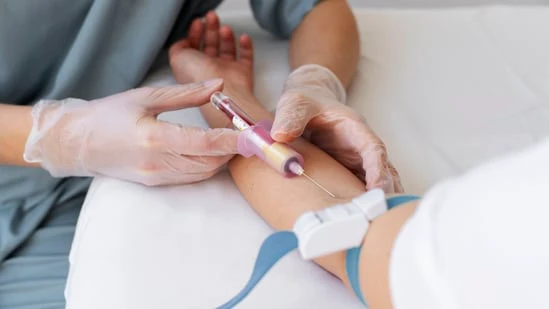Often, when we have to determine whether we are at risk of diabetes or if our blood sugar levels are normal, doctors suggest that we get a blood sugar test done.
But, according to Dr Alok Chopra, MBBS and MD (cardiology), your blood sugar test isn’t telling the full story.
In an Instagram post shared on July 7, the cardiologist warned that blood sugar levels can stay ‘normal’ while your insulin is already out of control, and silently cause damage. He wrote, “Your blood sugar might be ‘normal’ – but is your insulin? It’s time to look deeper. Prevention starts now.” Here’s what he suggested one should you do instead:
How to know if you have insulin resistance
The cardiologist suggested getting a ‘comprehensive insulin response test’ done, instead of a general blood sugar test. The insulin response test tells you how your body really responds to sugar. “It detects insulin resistance years before your blood sugar does,” Dr Chopra stressed.
What happens when you catch insulin issues early? According to the cardiologist, you can prevent:
- Brain fog
- Energy crashes after meals
- Stubborn belly fat
- Burnout
- Type 2 Diabetes
- PCOS-related symptoms
In what situations should you get the insulin response test done? Per the doctor: “Ask your doctor about an insulin response test if you feel tired after eating, have PCOS, a hormonal imbalance or have diabetes in your family.”
How to understand insulin health
For understanding your insulin health, Dr Chopra suggested that you need to check these markers:
- Fasting Insulin: 2-5 µIU/mL
- Post-meal Insulin (1-2 hrs): < 30 µIU/mL
- C-Peptide: 0.5-2.0 ng/mL (fasting)
“C-peptide tells us how much insulin your body is producing and whether it’s compensating for resistance. Most people never test C-peptide, but it’s one of the most accurate ways to understand if your pancreas is overworking to make insulin. When paired with fasting insulin, it paints a clear picture of your metabolic health, long before blood sugar goes up,” the cardiologist explained.
